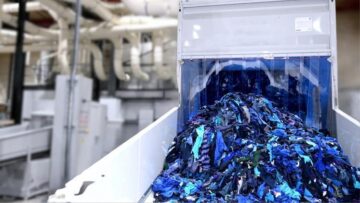
In a paper, the American Circular Textiles group identifies the shortcomings in circular fashion and suggests policy fixes. The paper emphasises the need for increasing investment in infrastructure and technologies to enable circular fashion practises while concentrating on the local market.
It also recommends the adoption of regulations that promote circularity, like increased producer accountability and tax breaks for environmentally friendly practises. The top writers in the area provide market coverage and industry commentary, as well as analysis, executive interviews, and management briefings, all of which are exclusively available on Just Style. Memberships for businesses and groups of users are also offered.
According to the paper, US legislation is required to promote the development of circular fashion, which entails creating, consuming, and disposing of clothing in a closed loop to reduce waste and lessen its negative environmental effects.
Globally, circular fashion is gaining traction as companies and retailers implement more circular strategies to cut their carbon footprint and achieve sustainability targets. The US, according to the report, lags behind other nations in this regard because there aren’t enough policy frameworks and incentives to promote circular fashion.
Lack of infrastructure for textile recycling, which is necessary for closing the loop in fashion production, is one of the major gaps in the report’s analysis. The research urges the US government to fund textile recycling facilities and offer rewards to companies that incorporate recovered materials into their goods.
The necessity for standardised branding and certification procedures for circular fashion products is another need that the research draws attention to. This will encourage firms to use circular practises and assist customers in identifying and selecting sustainable products. The US government should establish these mechanisms in collaboration with industry players, the research advises.
In order to ensure ethical and sustainable practises, the research also asks for enhanced openness and traceability in fashion supply chains. According to the research, the US government should mandate that companies reveal information about their supply chains and offer financial incentives to companies that use transparent and traceable business practises.
The paper highlights the importance of US legislation for promoting the expansion of circular fashion and urges decision-makers to collaborate with industry stakeholders to create frameworks and incentives. The US can benefit from the economic, environmental, and social advantages of circular fashion by closing these gaps.







